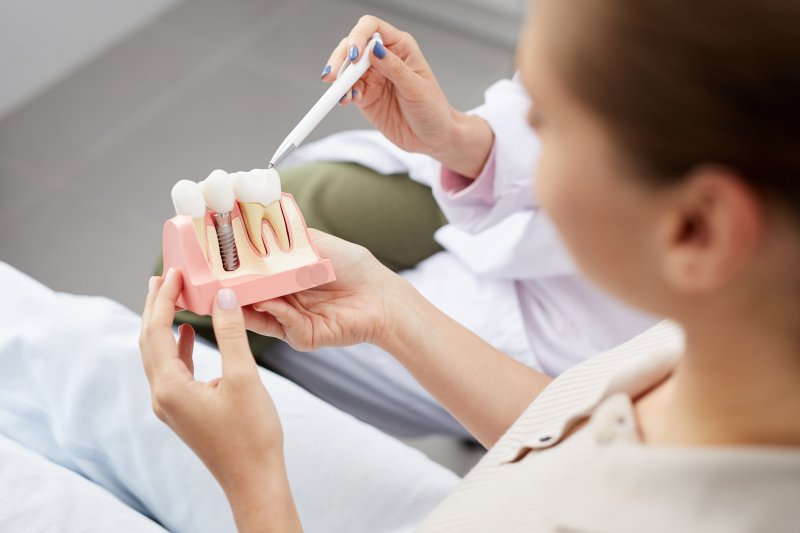
As if menopause alone wasn’t stressful enough, did you know it can affect your oral health? An estimated 50 million Americans have reached menopause, and most women spend a third of their lives in or beyond this change. While it’s a completely natural event, it can have a surprising impact on your smile. In this blog post, we’ll explain the effects of menopause on your mouth and how post-menopausal treatments can affect dental implants.
How Does Menopause Affect Oral Health?
In case you didn’t know, menopause happens when a woman no longer menstruates. It causes the body to undergo hormonal changes, sometimes leading to physical symptoms. A decline in estrogen and progesterone can cause hot flashes, insomnia, depression, and weight gain.
Let’s take a look at how it can affect your oral health:
Jawbone Density
Estrogen plays a key role in bone health, and low levels increase the risk of osteoporosis. The medical condition is marked by reduced bone density and strength. Severe osteoporosis can affect the jawbone to the point where it’s unable to support dental implants.
Gum Disease
Dry mouth typically accompanies other menopausal symptoms. If you fail to produce enough saliva, your mouth won’t effectively be able to rinse away harmful bacteria. This puts menopausal and post-menopausal women at increased risk of gum disease. Advanced gum disease can make you ineligible for dental implants as the infection can destroy the bone and gums around the implant. Ultimately, it can lead to implant failure.
Should Post-Menopausal Women Get Dental Implants?
Studies show that post-menopausal women tend to have a higher dental implant failure rate than other groups. However, that doesn’t mean you can’t pursue this tooth-replacement option. Here are some things to keep in mind:
- You have a measure of control. You can avoid or control osteoporosis with the help of a primary care practitioner. Also, proper dental care can help keep issues like gum disease at bay.
- Dental implant failure is rare. This modern tooth loss solution has an impressive success rate of 95% overall. While you can’t control menopause, you can control other risk factors. For example, you can quit using tobacco products and visit your dentist regularly for care.
- No two cases are the same. The only way to know for sure whether or not you’re a good candidate for dental implants is by attending a consultation with your dentist.
Menopause can affect how well your body accepts dental implants, but that doesn’t mean you shouldn’t pursue this treatment. Rest assured – your dentist will do everything possible to ensure successful treatment!
About the Practice
At Heart of Texas Smiles General & Cosmetic Dentistry, we value patient education and will always put your needs first. Our team will always go the extra mile to ensure you get the care you deserve. If you have any questions about dental implants, don’t hesitate to ask. You can reach a member of our team via our website or call (254) 848-0240.
